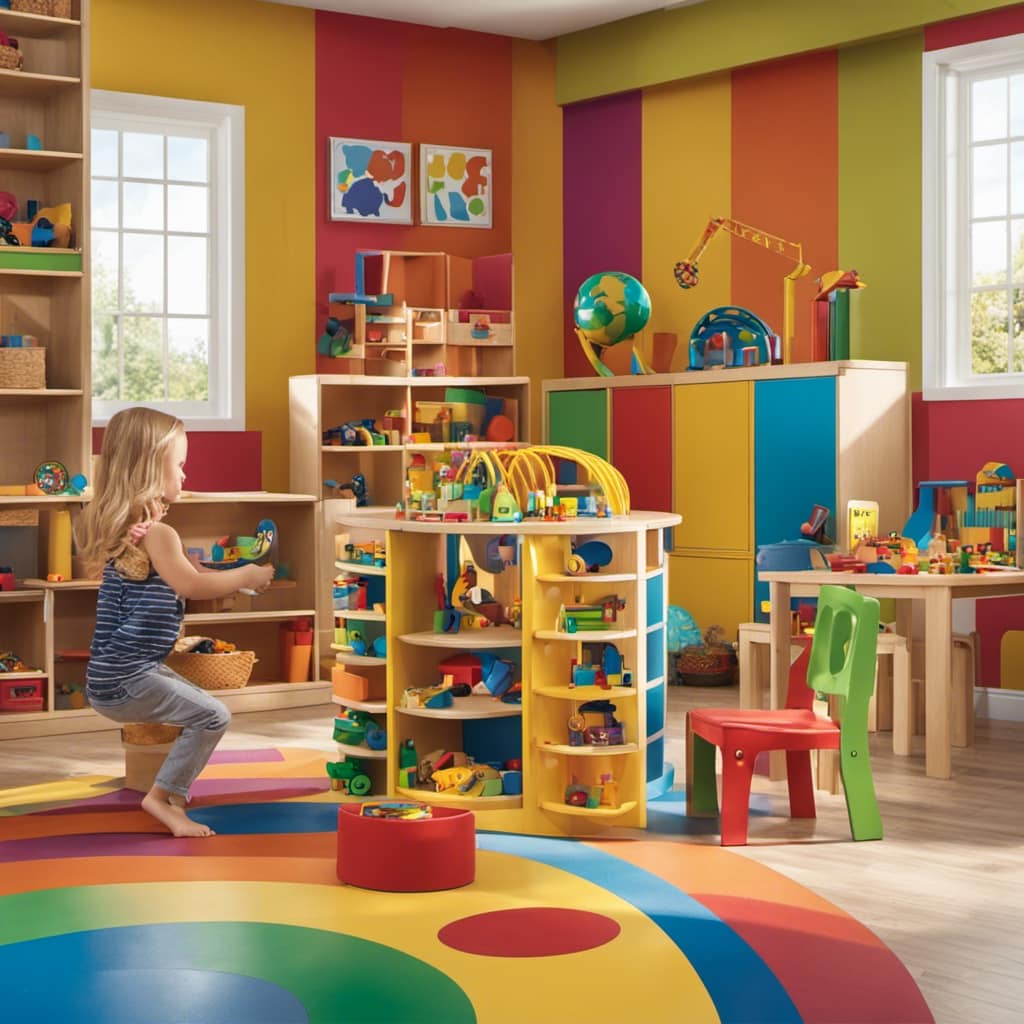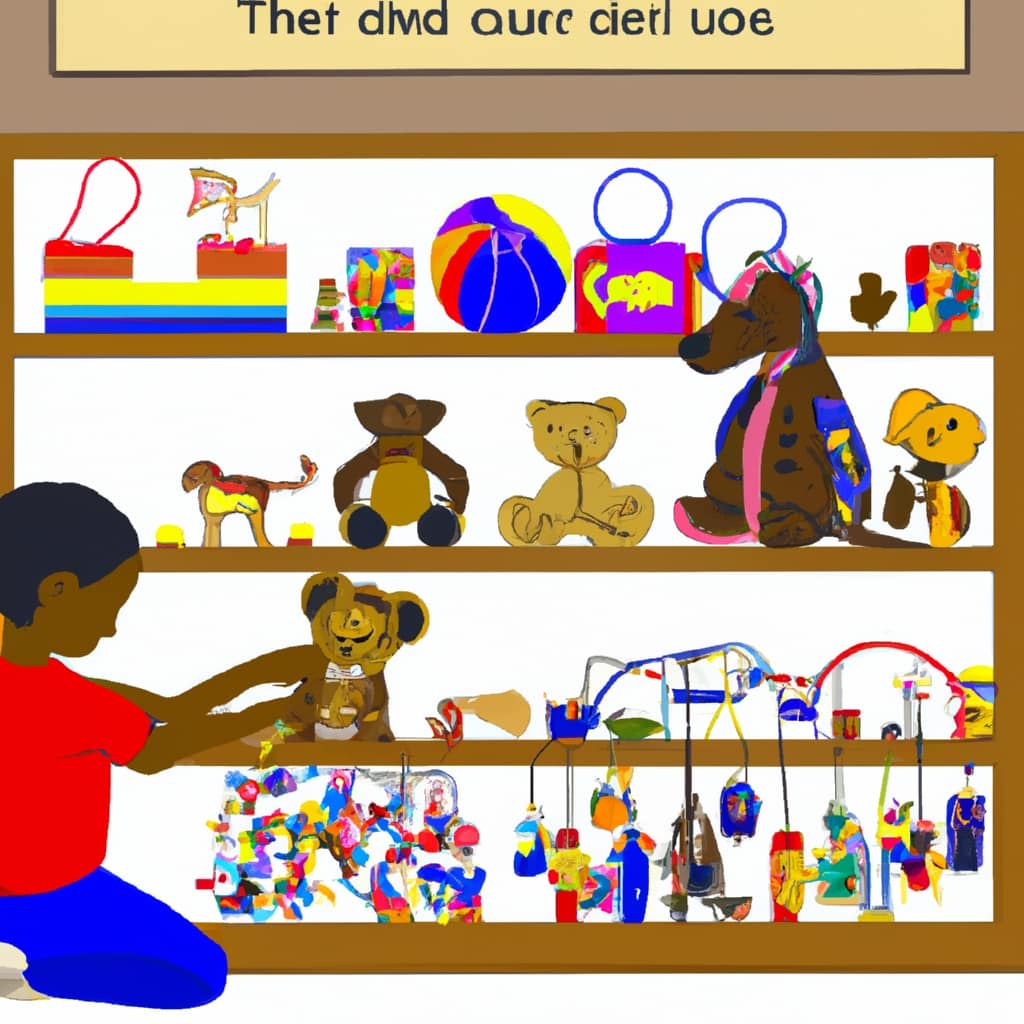As a parent, I often ponder the impact my parenting style has on my child’s development. It is interesting to see how the decisions we make as parents can shape our children’s emotional, social, and educational growth.
From strict rules to lack of discipline, each approach has its consequences. But what truly matters is finding that balance between clear expectations and nurturing support.
In this article, we will delve into the effects of various parenting styles on child development, shedding light on the long-term implications for our little ones.
Key Takeaways
- Authoritarian parenting can lead to low self-esteem and self-confidence in children
- Permissive parenting is associated with lower academic achievement and higher rates of risky behavior in children
- Authoritative parenting leads to higher self-esteem, better social skills, and stronger emotional regulation in children
- Neglectful parenting has detrimental effects on a child’s well-being and development
The Link Between Authoritarian Parenting and Low Self-esteem
I’ve learned that authoritarian parenting can have a significant impact on a child’s self-esteem and self-confidence, leading to long-term consequences for their emotional and social development.
The link between authoritarian parenting and low self-esteem is well-established in research. When parents adopt an authoritarian style, characterized by strict rules and high expectations without much flexibility, children often experience constant criticism and a lack of emotional support. This can lead to feelings of inadequacy and a negative self-image.
On the other hand, authoritative parenting, which involves setting clear expectations while being responsive and nurturing, has been found to promote higher self-esteem in children. Additionally, authoritative parenting plays a role in academic achievement, as it fosters a supportive and structured environment that encourages learning and growth.

Negative Consequences of Permissive Parenting on Academic Achievement
Permissive parenting negatively affects academic achievement in children, resulting in lower performance and difficulties with self-discipline and organization skills. This parenting style, characterized by a lack of rules and structure, has several negative consequences on a child’s development:
- Limited self-control and impulsivity
- Difficulty with authority figures and following rules
- Lower academic achievement
- Lower self-esteem
Research has shown that permissive parenting can hinder a child’s social skills and overall success in school and relationships. On the other hand, authoritative parenting plays a crucial role in fostering independence and positive outcomes in children.
By setting clear expectations and boundaries while being responsive and nurturing, authoritative parents promote higher self-esteem, better social skills, and stronger emotional regulation. These factors contribute to better academic performance and achievement.
It is evident that the parenting style employed greatly impacts a child’s academic success and overall well-being.
How Authoritative Parenting Enhances Emotional Regulation
By setting clear expectations and boundaries while being responsive and nurturing, authoritative parenting enhances a child’s emotional regulation.
Emotional intelligence plays a crucial role in this parenting style as it focuses on understanding and managing emotions effectively.

Authoritative parents encourage emotional expression, validate their child’s feelings, and provide guidance on how to cope with different emotions. They teach their children empathy, self-awareness, and problem-solving skills, which are essential for emotional regulation.
Strategies for promoting emotional regulation through authoritative parenting include providing a safe and supportive environment for children to express their emotions, teaching them emotional vocabulary, and modeling healthy emotional regulation themselves.
Additionally, parents can help their children develop emotional regulation by teaching them relaxation techniques, such as deep breathing or mindfulness exercises.
Overall, authoritative parenting fosters emotional regulation by nurturing emotional intelligence and providing the necessary tools for children to navigate their emotions effectively.
The Disruptive Effects of Inconsistent Parenting on Attachment Formation
Inconsistent parenting can disrupt the formation of secure attachments in children, leading to behavioral problems and difficulties in forming relationships. This disruption in parent-child bonding can have lasting effects on a child’s social relationships.
-
Inconsistent parenting can create uncertainty and unpredictability for children, making it difficult for them to trust and rely on others.

-
Children who experience inconsistent parenting may struggle with regulating their emotions, as they may not have learned healthy coping mechanisms.
-
These children may also have difficulties in forming and maintaining healthy relationships, as they may struggle with intimacy and trust.
-
Inconsistent parenting can impact a child’s self-esteem and self-worth, as they may internalize feelings of neglect or rejection.
Overall, the effects of inconsistent parenting on attachment formation can have significant repercussions on a child’s social and emotional well-being. It is crucial for parents to provide consistent and nurturing care to promote healthy relationships and development in their children.
The Crucial Role of Consistent Parenting Styles in Child Development
Consistency in parenting plays a vital role in shaping a child’s future and fostering healthy social and emotional development.
The importance of consistency in parenting styles for child development cannot be overstated. Building a strong foundation begins with understanding the role of consistent parenting in shaping a child’s future success and well-being.

Research has consistently shown that children who experience consistent parenting have better outcomes in various areas of their lives. Consistent parenting provides children with a sense of security and predictability, which is essential for their overall development. It helps them develop self-discipline, self-control, and a healthy understanding of boundaries.
Moreover, consistent parenting promotes the formation of secure attachments, which are crucial for building strong relationships and navigating the world. By providing a stable and nurturing environment, consistent parenting sets children up for success and helps them thrive in all aspects of life.
Long-term Impact of Authoritarian Parenting on Emotional and Social Development
In my previous subtopic, I discussed the crucial role of consistent parenting styles in child development. Now, let’s delve into the long-term impact of authoritarian parenting on emotional and social development.
Authoritarian parenting, characterized by strict rules and little flexibility, can have detrimental effects on a child’s self-confidence and self-esteem. Constant criticism and lack of emotional support can lead to low self-confidence in children raised in authoritarian households. These long-term consequences can persist into adulthood, affecting relationships and overall well-being.
On the other hand, permissive parenting, where there is a lack of rules and structure, can also impact relationship formation.
It is important to note that finding the right balance, such as adopting an authoritative parenting style, is crucial for promoting healthy emotional and social development in children.

The Drawbacks of Permissive Parenting on Self-control and Impulsivity
I’ve noticed that permissive parenting, characterized by a lack of rules and structure, can lead to difficulties with self-control and impulsivity in children.
The importance of discipline in permissive parenting cannot be underestimated. Without clear guidelines and boundaries, children may struggle to regulate their behavior and make impulsive decisions. Research has shown that children raised in permissive environments are more likely to have trouble with authority figures and following rules. This can have a negative impact on their success in school and relationships.
On the other hand, the role of structure in reducing impulsivity is crucial. Providing children with a consistent routine and clear expectations can help them develop self-control and make better choices.
The Positive Outcomes of Authoritative Parenting on Academic Performance
As I mentioned earlier, permissive parenting can have negative effects on a child’s academic achievement and self-esteem. However, there is another parenting style that has been shown to have positive outcomes, particularly in terms of academic performance. This style is known as authoritative parenting.
- Authoritative parenting involves setting clear expectations and boundaries while being responsive and nurturing.
- Research has consistently shown that children raised by authoritative parents tend to have higher self-esteem, better social skills, and stronger emotional regulation.
- These children also tend to perform better academically and achieve higher grades.
- The authoritative parenting style fosters a supportive and structured environment that encourages children to take responsibility for their own learning and success.
Overall, authoritative parenting has a significant impact on a child’s academic performance, providing them with the necessary tools and support to excel in school.
Frequently Asked Questions
How Does Neglectful Parenting Impact a Child’s Academic Success and Development?
Neglectful parenting negatively impacts a child’s academic success and development. It can lead to low academic achievement, lack of motivation, poor self-discipline, and organizational skills. Cognitive development may be hindered, resulting in long-term consequences.

What Are the Long-Term Effects of Authoritarian Parenting on a Child’s Emotional and Social Development?
The negative effects of authoritarian parenting on a child’s emotional and social development are significant. It can lead to low self-esteem, lack of self-confidence, and behavioral problems. These long-term consequences are well-documented in research studies.
What Are the Potential Consequences of Inconsistent Parenting on Attachment Formation in Children?
Inconsistent parenting can lead to attachment issues and difficulties with emotional regulation in children. It disrupts the formation of secure attachments, impacting their ability to form healthy relationships and can contribute to behavioral problems.
How Does Permissive Parenting Affect a Child’s Self-Control and Impulsivity?
Permissive parenting can negatively impact a child’s self-control and impulsivity. For example, children raised with few rules and structure may struggle with making responsible decisions and developing a sense of independence.
What Are the Positive Outcomes of Authoritative Parenting on a Child’s Academic Performance?
Positive outcomes of authoritative parenting on a child’s academic performance include higher self-esteem, better social skills, and stronger emotional regulation. The parent-child relationship is characterized by clear expectations, responsiveness, and nurturing, leading to increased academic achievement.
Conclusion
In conclusion, parenting styles have a profound impact on a child’s development, shaping their future like a sculptor molds clay.
Authoritarian parenting can chip away at a child’s self-esteem, while permissive parenting can leave them academically adrift.

However, authoritative parenting acts as a guiding light, nurturing emotional regulation and fostering social skills.
Inconsistent parenting, like a shaky foundation, disrupts attachment formation.
Consistency is key, as it lays the groundwork for a child’s success and well-being.
Choose your parenting style wisely, for it will leave an indelible mark on your child’s journey through life.










